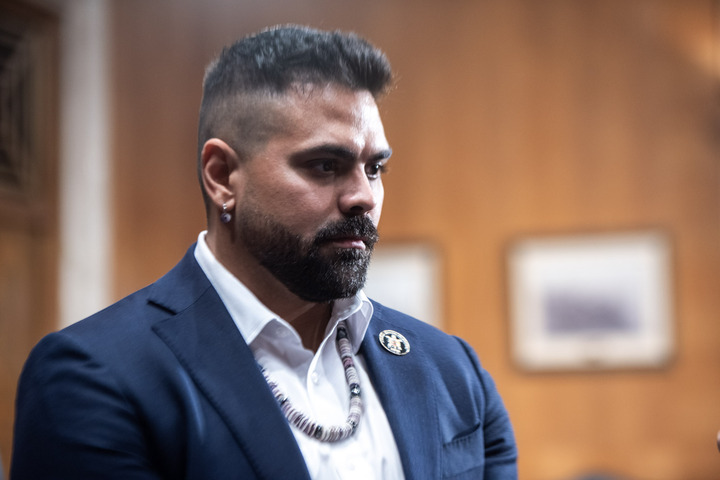WASHINGTON – As the government shutdown nears the one-month mark, Native American advocacy groups and leaders warned that furloughs, terminations and funding lapses are hurting education, food access and economic aid for tribal communities by slowing crucial federal programs.
At a Wednesday hearing before the Senate Committee on Indian Affairs, indigenous leaders cautioned that this could violate federal trust and treaty obligations.
“It is critically important to underscore that allowing shutdowns caused by partisan disagreement to impact the delivery and trust and treaty obligations is unacceptable,” the Secretary of United South and Eastern tribe’s sovereignty Protection Fund, Sarah Harris, said.
Senators seemed to recognize this impact. Sen. Lisa Murkowski (R-Alaska) said that when furloughs occur, many of the federal employees who monitor the government’s treaty organizations are “unable to do their job,” disrupting access to federal services.
Sen. Brian Schatz (D-Hawaii) agreed, saying that layoffs are “choking off funds” promised for Native communities.
The effects of the shutdown are rippling across different aspects of Native life, including education.
“As we speak, the Office of Indian Education staff at the Department of Education are receiving their RIF [Reduction in Force] notices,” Schatz said. “Without these federal workers, Native education programs, required by law, could grind to a halt.”
Kerry Bird, the president of the National Indian Education Association, said that seven out of nine staff members in the Office of Indian Education have recently been terminated and that some educational programs could be eliminated.
According to Bird, if workforce reductions continue to disrupt education, the United States will be violating its treaty obligations.
For many smaller tribes, internal funds are low, which creates a larger disruption in education that has forced dire decisions.
“They are being forced to decide between keeping their early childhood classrooms open or feeding their communities,” Bird said.
Education is not the only deepening crisis. With Supplemental Nutrition Assistance Program (SNAP) funding likely to lapse on Nov. 1, food insecurity will increase.
According to data provided by the U.S. Government Accountability Office, around 23% of Native families rely on SNAP. For many tribes, local food banks aren’t a reliable food source, said Ben Mallott, the president of the Alaska Federation of Natives.
Several tribes have already declared states of emergency. On Tuesday, the Cherokee Nation declared a state of emergency over food insecurity.
Low Income Home Energy Assistance Program funding will also experience a lapse in funding on Nov. 1
About 149 tribes in 25 states receive LIHEAP funds. Mallott said that without SNAP and LIHEAP, members of his community will have to decide between “food and fuel.”
Experts also warned that cuts to programs like the Native Community Development Financial Institutions (CDFI) will devastate their economies.
“Forty-six percent of tribal communities are located in banking deserts,” said Pete Upton, the CEO of the Native CDFI network. “Native CDFIs are typically the only financial institution serving these communities, providing access to capital, credit and financial education where no alternative exists.”
On Oct. 10, all CDFI Fund staff were terminated and the administration was set to be permanently abolished.
As Native leaders and advocates seek to solve these emerging challenges created by the government shutdown, they are facing roadblocks due to the government’s lack of clear communication about layoffs and closures.
Liz Malerba, the director of policy and legislative affairs for United South & Eastern Tribes Sovereignty Protection Fund, said that she was only able to find out about RIFs from court filings, not the administration.
“We’re calling upon Congress to assist with an oversight of the executive branch to try and ferret out what has happened and what is going to happen,” Malerba said.

